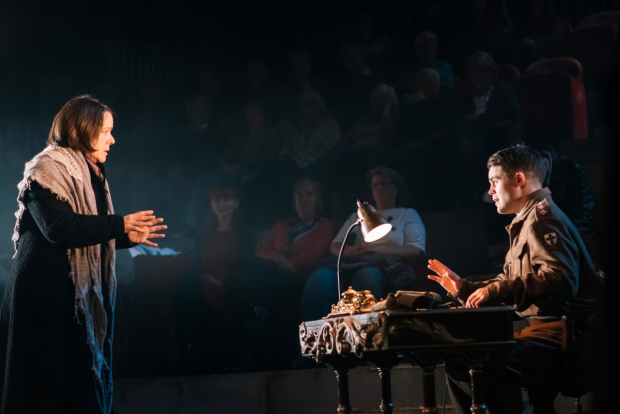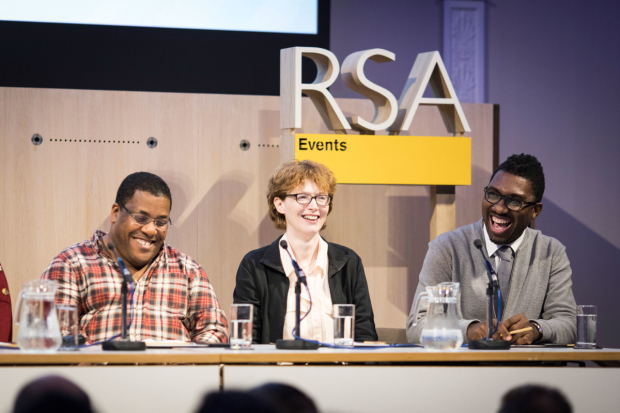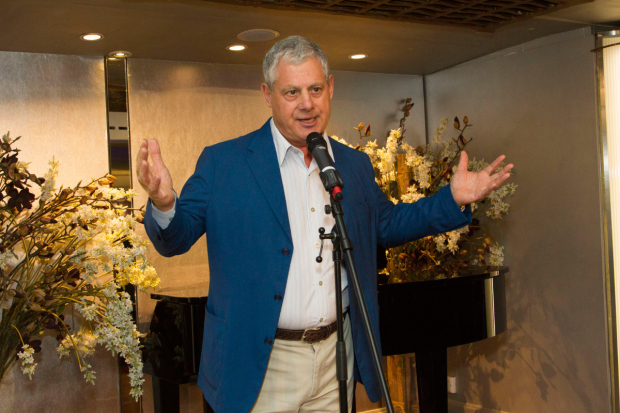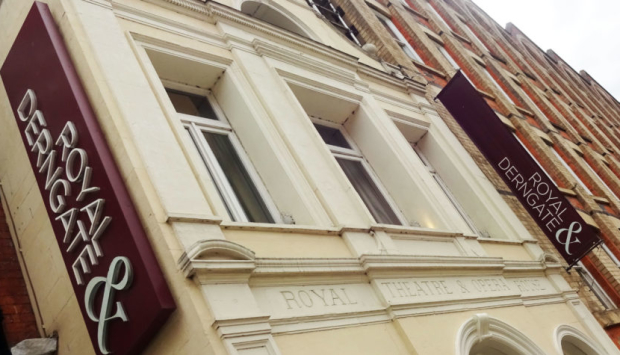Review: Cockpit (Lyceum Theatre)

© Mihaela Bodlovic
Bridget Boland’s Cockpit begins and ends in chaos, with several stop-offs for bedlam in between. The action is set in a German theatre that has been requisitioned by the British occupation forces at the very end of the Second World War. The theatre is a transit camp for "Displaced Persons" awaiting relocation back to their homes, if they have any. Two British soldiers are tasked with keeping order, but they find it an increasingly difficult as the norms of civilized society crumble around them.
It’s a fascinating idea for a play, and on paper the concept is brilliant. Part of the play’s focus is on the exploration of European identity, something very relevant for today, and the interaction of the different nationalities – French, Polish, Russian, Jewish, Yugoslav – who are all supposed to be on the same side. It becomes an interesting study in tribalism: those who lived closest to one another in the outside world have to be kept as far apart as possible in the camp.
The play’s other main interest comes from its use of the physical space. Wils Wilson’s production turns the Lyceum auditorium into the very place it is trying to represent, including scenery that spills out across the proscenium, signs in different languages, and ladders that characters use to clamber between the different levels, thus attempting to make the audience part of the action. It was when this was new and exciting that the play was at its best, and there was a rawness about the opening that I found compelling, with the soulful Slavic opening song (by music director Aly Macrae) and a bitter fight breaking out between two Polish women.
After a while, however, I began to wonder whether the set was really anything other than an interesting conceit. The dramatic structure basically consists of a series of commotions offstage that are then brought centre stage for the soldiers to deal with. When that repeats with little variation, you wonder whether they really needed to go to the bother of renovating the space.
The play has other serious dramatic problems too. I spent most of the first half wondering what it was really about, and when Boland finally reveals her hand in the second act, her exploration of the power of belief is superficial to the point of posturing. Aspects of the production didn’t help, either. Macrae’s music created atmosphere but was dramatically inert and held up what little action there was.
The multinational cast mostly do a good job with what they’re given. If Peter Hannah is a little woolly in the central role as Captain Ridley, then his colleagues keep things moving, with a bluff Sergeant in Deka Walmsley, a moral conscience Professor from Alexandra Mathie and a sparky set of French and Slavic refugees who find some spark in their interactions.
Ultimately, the problem is the play’s though. Boland takes a fascinating, unique moment in human history and turns it into something self-reflexive that doesn’t really go anywhere. The second act is briefly energised by a suspicion of bubonic plague among the refugees, but after that resolution the play’s ending is so melodramatically overblown as to be laughable. There are plenty more vehicles that explore changing aspects of European identity much more successfully than this. Cockpit ends up being a noble failure.
Cockpit runs at the Lyceum Theatre until 28 October.













